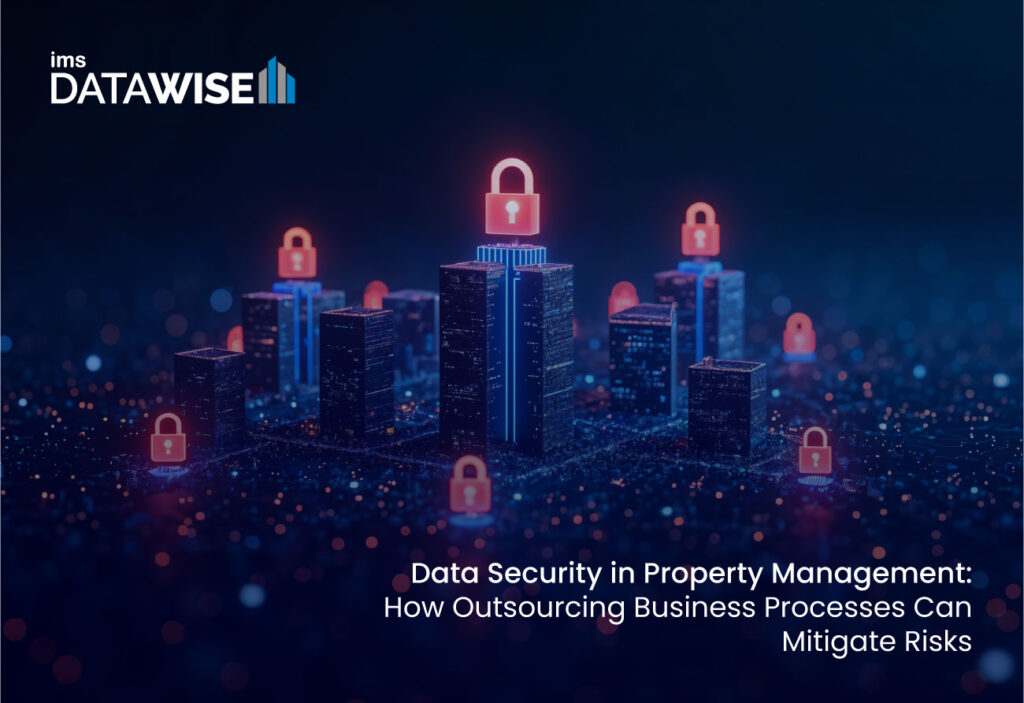Data Security in Property Management: How Outsourcing Business Processes Can Mitigate Risks

Property data security is vital. Discover how outsourcing business processes in property management can effectively reduce data breach risks.
How to Stay Ahead of Mortgage Industry Challenges

The mortgage industry is a key pillar of financial markets, influencing not only the real estate sector but also the broader economy. Its performance often acts as a barometer for economic health, with shifts in mortgage trends reflecting larger economic patterns. Currently, the industry stands at a critical crossroad. Market conditions have undergone significant changes, particularly in the wake of the COVID-19 pandemic, which reshaped both lending standards and borrower behavior. Tighter lending criteria, coupled with more dynamic and mobile borrower expectations, are driving the need for innovation and adaptation. These changes require industry to navigate new challenges, while maintaining its essential role in supporting economic stability and growth. Challenges of the Mortgage Industry & Strategies to Overcome Them The total mortgage origination volume will grow to $2.3 trillion in 2025, compared to the expected $1.79 trillion in 2024. That means housing demands can be higher, and lenders will need to streamline their processes, enhance customer experience, and adopt advanced technologies like automation, data analytics, and AI-driven solutions. By leveraging these tools, lenders can improve operational efficiency, reduce risk, and better serve borrowers in an increasingly competitive market. Additionally, focusing on strong risk management practices, such as early delinquency detection and effective loan servicing, will help maintain financial stability and reduce defaults. 1. Managing High Volume Borrower Data In today’s data-driven landscape, lenders must efficiently manage vast amounts of borrower data. Without the right systems, they risk errors, inefficiencies, and poor customer retention. Advanced Loan Management Systems with automated underwriting, predictive analytics, and machine learning streamline processing, identify risks, and optimize borrower selection. 2. Adapting to Regulatory Changes Regulatory changes in the mortgage industry make team alignment challenging. Clear processes, regular briefings, and timely updates, like loan origination system updates, are essential to minimize inefficiencies, communication gaps, and compliance risks. For instance, promptly updating loan origination systems help minimize compliance risks. 3. Operational Inefficiency Operational inefficiency in the mortgage industry causes loan processing delays, higher costs, and poor customer experience, often due to outdated manual processes, siloed systems, and lack of automation. To address operational inefficiency, mortgage companies should invest in automation tools, streamline workflows, and integrate digital platforms that enable better data sharing and real-time tracking. 4. Implementing Early Warning Systems Identifying potential loan delinquencies early is essential for lenders to mitigate risk and protect their portfolios. By leveraging early warning systems, lenders can closely monitor key indicators such as missed payments, declining credit scores, and changes in financial behavior. These systems enable lenders to detect signs of trouble before they escalate, providing an opportunity to intervene proactively. Early interventions may include offering payment restructuring options, adjusting loan terms, or providing financial counseling to borrowers struggling to meet their obligations. Such proactive measures not only help reduce the likelihood of default but also foster stronger relationships with borrowers, potentially improving long-term outcomes for both parties. 5. Addressing Increasing Credit Tightness Credit tightness is unpredictable and challenging for both borrowers and lenders, often leading to reduced loan originations and slower growth. To stay afloat, mortgage lenders must focus on: 6. Dealing With Concentrated Loan Portfolios Concentrated loan portfolios increase default risks, especially during downturns. For example, focusing solely on commercial real estate can hurt your portfolio if the market declines. Diversifying allows you to pivot to stronger sectors while planning a strategy for recovery. Partner With IMS Datawise The mortgage industry is dynamic and challenging and will continue to evolve. To navigate these challenges, outsourcing to an experienced partner like IMS Datawise is key. At IMS Datawise, we handle all the mortgage-related operations – right from data collection to data filtration and operational process optimization. We use a combination of automated and human intelligence to make mortgage processing faster and more efficient. We are a data-driven outsourcing partner that uses advanced technology to streamline the company’s operations. Contact us to learn how we can help you make smarter decisions and strategize your growth, especially during turbulent times.
Enhancing Insurance Operations Through Expert Outsourcing Services

For insurance companies, the perennial challenge is to keep customers satisfied consistently. They can achieve this by processing claims promptly, resolving issues, and making timely yet accurate decisions. This challenge (mainly) has remained at the top over time because of its complexity and dynamic changes in human nature. However, that’s not the only challenge. Hurdles such as intensifying competition, rising fraud cases, talent shortages and management, digitalization, and more have also become topics of concern over time. The ultimate and most efficient solution to tackle these challenges is outsourcing your firm’s operations to an insurance outsourcing company. Not only will your company reduce costs, but all operations will be streamlined, resulting in quick, accurate claims. You can opt for outsourcing insurance BPO services, claim settlement operations, and even back-office operations. To learn more about how outsourcing can help, please read on. The Growing Need for Outsourcing in Insurance Like any other industry, the insurance sector also faces mounting operational challenges. Rising operational costs, keeping up with stringent compliance requirements, inefficiencies in work, and unpredictable season workloads are a few issues that every insurer is confronted with. There’s a need for outsourcing because such issues not only strain resources but also risk compromising customer satisfaction. And let’s be honest, no customer wants to work with an insurer who can’t keep up with their promises. When you partner with a specialized service provider, you get acces to expert talent, result-oriented workflows, and advanced technology-driven operational efficiency. All of this comes under a package that reduces your firm’s overhead operating expenses. Additionally, outsourcing provides your company with solid back-end support to scale the business. This is possible without overextending the internal team, as you’ll have a pre-trained team of professionals managing peak workloads accurately. Core Areas of Insurance BPO Services Outsourcing insurance BPO services can save up to 15% on average over your in-house team (Source: ISG). But what comes under this package of services? Let’s take a look! Benefits of Insurance Outsourcing Services Insurers around the globe are increasingly turning to outsourcing services because of the following reasons: How to Select the Right Outsourcing Partner Choosing the right outsourcing partner can define the success of your business. So, take a look at this quick guide to pick the right one: If you get satisfactory answers to these questions, don’t wait to hire them and grow your business. Future Trends in Insurance Outsourcing Insurance outsourcing is an ever-changing sector that evolves according to trends. AI-powered claims processing, fraud detection, and predictive analytics are being adopted for smarter underwriting and risk management. With a growing focus on personalized, customer-centric solutions, outsourcing remains a strategic partner for those who aim to smooth their operations while saving expenses. If you aim to be part of the future, it’s time to partner with a leading insurance outsourcing company such as IMS Datawise. Explore our wide range of solutions tailored to organize and boost your business operations. You can contact us to learn more about how we can help.
Why Predictive Analytics is the Core of Modern Back-Office Management

Emerging technologies like Artificial Intelligence, Machine Learning, and IoT have significantly revolutionized business functionalities. Predictive analytics uses such intelligent algorithms to unlock the true potential of data and leverage the same for precise decision-making. These data-driven insights offer actionable forecasts to fine-tune operations and drive innovations. Predictive analytics uses historical and real-time data to uncover meaningful patterns and trends for proactively shaping future strategies. It also helps identify bottlenecks, market fluctuations, potential challenges, shifting consumer demands, and other risks. As a result, businesses can make necessary changes and streamline their operations for better alignment with their goals and objectives. We have discussed here how predictive analytics redefines back-office processes and offers a competitive edge in the dynamic market space. Business Value of Predictive Analytics in Back-Office Processes In simple terms, predictive analytics combines data from various sources to anticipate future events or outcomes. It uses different types of models for classification, regression, clustering, time series analysis, and neural networking to ensure a high degree of certainty. Predictive analytics hugely improves core back-office function areas. For instance, Thus, predictive analytics helps immensely with smoother back-end processes related to HR, finances, supply chain, and IT. Enhancing Operational Efficiency and Productivity Since predictive analytics relies on relevant information processed using intelligent algorithms, errors are much less likely. It helps eliminate redundancies in procurement processes, invoice management, and other vital operations and flags any anomalies, delays, and mistakes. For instance, manufacturing units must ensure proper maintenance to maximize production efficiency and minimize downtime. Any negligence can lead to major breakdowns and potential safety hazards. Businesses usually bear heavy losses even for these occasional disruptions. However, predictive analytics can help schedule timely maintenance using real-time data-based parameters. Recent reports show companies can ensure up to 40% cost savings using predictive maintenance scheduling over preventive or reactive maintenance solutions. Although predictive tools and setups demand a substantial initial investment, they offer considerable savings and productivity gains that are absolutely worth it in the long run. Improving Decision-Making Accuracy with Data-Driven Insights Predictive analytics analyzes a broad pool of data that is beyond human capabilities. Recent predictive models are augmented with intelligent technologies to automate complicated steps and generate accurate results with minimal training. Thus, they can forecast future needs and demands, enabling precise planning and optimal resource allocation. Companies of all scales and sizes can unleash the power of data using predictive analytics. This tool exhibits a strong understanding of human behavior and provides specific insights, ensuring smarter business decisions. Predictive analytics can forecast staffing needs and thus help with: Besides, they play an instrumental role in financial decisions like The best part about predictive analytics is it requires minimal or even no human intervention. Since it is not based on biased personal opinions but solid facts, it promotes informed decision-making with clear accountability, consistency, and confidence in the anticipated outcomes. Automation of Routine Back-Office Tasks Predictive analytics can be integrated with advanced automation technologies for the best possible outcomes. It works best for automating repetitive tasks that do not require intellectual support. Additionally, setting up regulatory compliance rules to streamline workflows and identify deviations is also possible. For instance, payroll processing is time-consuming and hectic, with high chances of errors and miscalculations. Modern payroll systems demand real-time data analysis and dynamic reporting. Combining predictive analytics and automation models can ensure timely payroll execution with minimal discrepancies. Besides, not all back-office operations need human intelligence. When automated with a predefined set of rules, they can free up resources and save a lot of time. Thus, businesses can focus more on growth and innovation rather than worrying about completing these tasks. Strengthening Risk Management and Fraud Detection Frauds, financial thefts, and cyber threats are major business concerns that require proactive monitoring. Predictive analytics can help in these aspects as they spot unusual actions and potential risks by analyzing historical and real-time data. They offer a more dynamic approach and do not solely rely on rule-based systems. They can also be used for multi-layered defences and customized to specific business needs. Real-Time Analytics for Agile Decision-Making With constantly changing business demands, businesses must add that extra edge to stay relevant. Integrating real-time analytics can increase business agility and resilience. For instance, with fluctuating demands, companies can make real-time adjustments to staffing, inventory, budget, and resource allocation. It is immensely beneficial for high-stakes industries particularly. Data Integration and Quality for Effective Predictive Models Ensuring consistency and accuracy in the data used for reliable predictive insights is crucial. Besides, there are common integration challenges in back-office environments. Silos and unstructured data, inaccuracy, and quality issues can hamper predictive analytics outcomes. To address these concerns, organizations should adopt centralized data systems or third-party integration services for better information accessibility amid the diverse data landscape. Moreover, these solutions also help enrich the existing data quality with efficient transformation techniques. Ethical Considerations and Compliance in Predictive Analytics Another common data management issue is addressing ethical considerations and compliance requirements. Since back-office operations like HR and Finance handle critical and confidential business information, data ethics and privacy are major concerns. Therefore, it is essential to ensure robust security measures, trust, and regulatory compliance in order to make ethical use of predictive analytics. Scaling Predictive Analytics Across Back-Office Departments Predictive analytics has incredible potential and can significantly impact organizational efficiency and innovation. It can smoothen core business processes and prepare better for future uncertainties. However, scaling predictive analytics across different departments can be overwhelming for businesses. Thus, it is advisable to start small, preferably with pilot projects, and scale later after testing the feasibility. This phased approach can help understand the efficacy and feasibility of implementing predictive analytics. Top companies have already adopted this approach and experienced massive transformation in their daily operations and processes. For instance, the multinational e-commerce retailer Amazon has been using predictive forecasting to react to and cope with sudden spikes in product demand. According to a Forbes report, Amazon started predictive analytics over a decade ago and accelerated the
Mitigating Liability: Transferring Risk Through Outsourced Property Management Operations

Property management is a field often fraught with complex regulatory and operational demands. The firms must take care of local laws, tenant issues, safety standards, etc., at all times with the utmost proficiency. However, there are chances these aspects won’t be properly managed due to many properties, risking you losing clients. Therefore, about 89% of property management companies outsource their operations to reliable service providers to mitigate such risks. A strategic partner manages most operations and handles all situations on time so your firm and clients remain harmonious. However, how exactly do outsourcing property management firms mitigate risks by handling the operations? Read on to find out the answer. How Outsourcing Property Management Operations Mitigates Liability? An outsourced property management company takes control of various operations to make sure no laws are violated, rent is collected on time, and tenants are happy. 1. Lease Agreement Preparation Lease agreements contain various stipulations that, if improperly drafted, can expose property owners (your clients) to legal risks. Outsourcing this operation makes sure that such agreements comply with local laws, are clear, and don’t contain terms that jeopardize the property. Therefore, the risk of tenants suing your clients for wrongdoing decreases. Outsourced property managers create standardized, legally vetted documents that address common pain points, from ambiguous clauses to fair tenant terms. Not only that, but outsourcing lease preparation operations also helps your company align its agreements with newly introduced regulations. Thus reducing the risk of legal disputes, costly litigation, fines, or any other tenant conflict. 2. Rent Collection Rent is a revenue source for property owners, and delays or disputes over it can collapse your deal with your clients. This is the risk many property management firms are aware of but not successful in mitigating it. However, outsourcing this operation can exclude your company from that list. The outsourcing partner can reduce/mitigate the risk of you losing business because of rent issues because they have systematic pipelines explicitly built for such operations. Your outsourcing partner will employ rent tracking and reminders for each property you manage. Any delay in payment for a property or in case of multiple non-payments, they manage the legal follow-ups and any necessary collection action. If any complaints need to be filed in such a regard, the outsourcing partner can also help through the entire process. Therefore, they support you in every possible way and minimize the risk of losing a property due to rent issues. 3. Legal Compliance Most countries have property regulations, such as in many counties of the US, where grass length must be below 12 inches. In the same way, others are required to keep pathways clear of snow, update fire safety equipment, and more. Missing a single requirement, like someone slipping and getting injured because of failing to clear snow, can lead to a penalty. However, your company can avoid risking client relations over such compliance by outsourcing this operation. When you choose a qualified outsourced property management company to manage this operation, they ensure the property doesn’t violate any rule. These companies partner with legal compliance specialists in different regions to update themselves about every rule. Further, they have access to trusted contractors who can do periodic maintenance checks on the properties your firm manages. They also keep tenants in the loop so they’re aware of the rules and try to upkeep the property’s condition. So, through this process, your outsourcing partner ensures that the properties remain compliant with federal laws, and your client stays out of legal exposure. Thus mitigating your risk of dealing with any unexpected legal matter and losing a client. 4. Tenant Screening & Management The biggest risk of managing a property is renting it to unreliable tenants. Because then, you’ll not only have to handle the tenants but also make amends with the property owners. In most cases, tenant disputes occur due to negligence during the screening. Now, it’s understandable that when managing numerous properties, there’s always room for errors. However, such cases can risk your reputation along with the lost business. So, to avoid the risks, outsource tenant screening and management operations. The outsourced property management company can help your firm rent properties to vetted tenants. The ones who clear screening processes such as financial stability and background checks for behavior. The outsourcing partner facilitates the entire screening process on their own and presents you with the best candidates. Besides helping to rent, they also manage those tenants’ grievances professionally, diffusing tensions and resolving issues efficiently. This approach minimized the risk of conflicts between tenants and property owners. Therefore, your company can hold onto properties without reducing your operational value while minimizing the risk of impacting clients’ revenue as the rent keeps flushing money. 5. Vacant Property Registration Even when a property you manage is vacant, it remains exposed to risks. To make it stay out of it, you’ll need to add extra operational power at your company, which will cost you and still will have a chance of error, resulting in the risk of penalties. Instead, you can partner with a reputed property management outsourcing company and let them handle the vacant property registration, security, and maintenance operations. Outsourcing transfers the risk of making mistakes as they have systematic procedures running this entire operation. They partner with reliable contractors for property maintenance and security. They help with vacant property registration, like filling out applications and follow-ups. Additionally, they make sure properties remain compliant with their area codes to avoid fines. 6. Communication with Municipalities Responding to city/municipal correspondence is a part of outsourcing property management services, and it can free up your operations department. Communication with municipalities is a crucial back-office operation that takes time and effort. Undoubtedly, your property management firm can handle this operation, but it’s also true that there can be miscommunications when managing hundreds of properties. Even the slightest miscommunication can result in legal consequences. Therefore, there’s always a risk of small issues getting big and taking a toll on your entire
How to Elevate Property Management Processes through Outsourcing

In the world of real estate, success often hinges on one crucial factor: effective property management. Whether you own a handful of rental units or an extensive portfolio of commercial properties, managing these assets can be demanding and complex.
Efficiency, Expertise, Excellence: The Advantages of Outsourcing in Property Management

Professional back-office outsourcing is not merely a convenience; it’s a strategic maneuver that propels your rental property business toward sustained profitability and value appreciation.
Navigating the Future of SFR: IMS Datawise at the IMN SFR Conference 2024

The single-family rental (SFR) market is booming. With homeownership becoming increasingly challenging due to rising rates and a competitive market, SFRs present a compelling alternative for renters.
Empowering Financial Institutions: The Potential of Offshoring

In the dynamic financial landscape of today, credit unions and community banks stand out as the lifeblood of local communities, offering a unique blend of personal service and financial inclusion.
Beyond Borders, Beyond Limits: How Offshoring is Revolutionizing Fintech

The fintech industry is experiencing unprecedented growth, revolutionizing how we handle financial transactions and manage our money.










